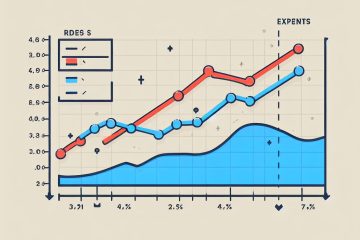For many seniors, retirement is a time to savor the fruits of decades of hard work and homeownership. However, some retirees may face financial challenges or wish to supplement their income to fund their retirement dreams. In such cases, a reverse mortgage can be a valuable financial tool. Reverse mortgages in Canada empower seniors with the ability to tap into their home equity.
1. Understanding Reverse Mortgages
A reverse mortgage is a unique financial product designed exclusively for Canadian homeowners aged 55 and older. Unlike traditional mortgages, which require monthly payments, reverse mortgages allows homeowners to convert home equity into tax-free cash. All without having to sell or move out of their home.
2. How Reverse Mortgages Work
With a reverse mortgage, eligible homeowners can borrow up to a certain percentage of their home’s appraised value. The amount borrowed, known as the loan principal, accumulates interest over time. The key distinction from traditional mortgages is that no regular mortgage payments are required. Instead, the loan becomes due when the homeowner sells the home, moves out permanently, or passes away. At that time, the loan, including accrued interest, is repaid from the proceeds of the home sale.
3. The Benefits of Reverse Mortgages
- Access to Home Equity: Reverse mortgages provide a means for homeowners to access their home equity, which may be a substantial source of wealth for retirees.
- No Monthly Payments: One of the most significant advantages of a reverse mortgage is the absence of monthly payments, easing financial burdens during retirement.
- Financial Flexibility: Seniors can use the tax-free cash from a reverse mortgage to supplement retirement income, fund home improvements, cover healthcare expenses, or fulfill other financial needs and aspirations.
- Option to Stay in the Home: Borrowers retain ownership and can continue living in their home as long as it remains their primary residence.
- No Negative Equity Guarantee: Canadian reverse mortgages come with a “no negative equity” guarantee, ensuring that homeowners (or their estate) will never owe more than the home’s fair market value, even if the loan balance exceeds that value.
4. Eligibility and Considerations
To qualify for a reverse mortgage, homeowners must meet certain criteria, including:
- being at least 55 years old,
- residing in a primary residence,
- and having sufficient home equity.
While reverse mortgages offer compelling benefits, borrowers should also consider factors. Interest rates, fees, and the impact on their estate when deciding if a reverse mortgage aligns with their financial goals.
Conclusion
Reverse mortgages offer Canadian seniors a practical and flexible solution to unlock the value of their home equity while maintaining homeownership and financial independence. It is essential for homeowners to thoroughly understand the terms and implications of a reverse mortgage. Seeking advice from qualified financial advisors or mortgage specialists is important to fully understand the product. For those looking to supplement retirement income, fund long-held dreams, or manage unexpected expenses, a reverse mortgage can provide the financial freedom. As well as security to embrace the golden years with confidence.
Click here to apply or reach out and we would be happy to answer any other questions


